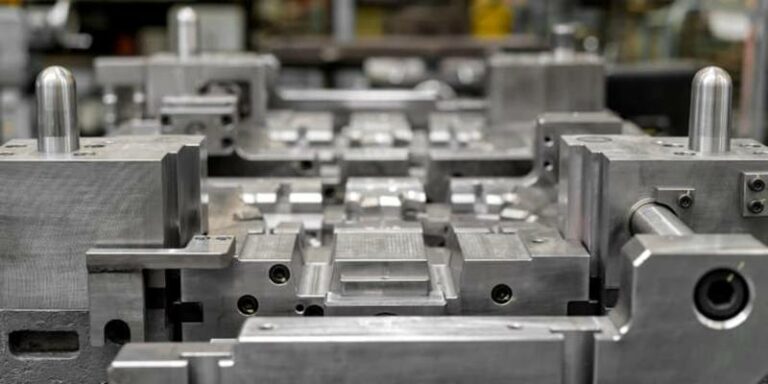Stahl Specialty Company Can Be Fun For Everyone
Stahl Specialty Company Can Be Fun For Everyone
Blog Article
The 9-Minute Rule for Stahl Specialty Company
Table of ContentsThe Greatest Guide To Stahl Specialty CompanyNot known Facts About Stahl Specialty CompanyWhat Does Stahl Specialty Company Mean?What Does Stahl Specialty Company Do?Indicators on Stahl Specialty Company You Should Know
Chemical Contrast of Cast Aluminum Alloys Silicon promotes castability by lowering the alloy's melting temperature level and improving fluidness throughout casting. Additionally, silicon adds to the alloy's toughness and use resistance, making it useful in applications where sturdiness is important, such as automotive parts and engine elements.It also boosts the machinability of the alloy, making it simpler to refine into finished items. In this way, iron adds to the total workability of aluminum alloys. Copper boosts electric conductivity, making it beneficial in electric applications. It additionally improves rust resistance and includes in the alloy's total strength.
Manganese adds to the toughness of aluminum alloys and enhances workability. It is commonly utilized in wrought aluminum items like sheets, extrusions, and accounts. The existence of manganese aids in the alloy's formability and resistance to breaking during fabrication processes. Magnesium is a lightweight aspect that offers stamina and effect resistance to light weight aluminum alloys.
It permits the production of lightweight elements with exceptional mechanical homes. Zinc boosts the castability of light weight aluminum alloys and assists control the solidification process during casting. It improves the alloy's strength and firmness. It is commonly discovered in applications where elaborate forms and great details are essential, such as ornamental castings and specific automobile components.
Stahl Specialty Company Things To Know Before You Buy
Because aluminum-silicon alloys have excellent casting properties, high gas buildings, basic processes, and exceptional corrosion resistance, aluminum-silicon alloys are most generally utilized in the die-casting industry in your home and abroad. At the same time, aluminum-silicon alloys are likewise relatively very early and widely identified alloys developed and made use of in die-casting. After constant study and enhancement, a lot of the present international mainstream aluminum-silicon alloys have actually been settled and are nothing greater than A356, A360, A380, ADC12, B390, and A413.
The key thermal conductivity, tensile strength, yield stamina, and prolongation vary. Amongst the above alloys, A356 has the highest thermal conductivity, and A380 and ADC12 have the lowest.

Not known Details About Stahl Specialty Company
In precision casting, 6063 is well-suited for applications where complex geometries and high-quality surface area finishes are critical. Examples consist of telecommunication enclosures, where the alloy's superior formability enables sleek and cosmetically pleasing designs while maintaining architectural honesty. In the Lights Solutions industry, precision-cast 6063 components create stylish and effective lights components that call for detailed forms and good thermal performance.
(https://www.reddit.com/user/stahlspecialc/)
The A360 exhibits exceptional prolongation, making it excellent for complicated and thin-walled components. In accuracy casting applications, A360 is appropriate for sectors such as Customer Electronic Devices, Telecommunication, and Power Tools.

In accuracy spreading, light weight aluminum 413 beams in the Consumer Electronic Devices and Power Equipment industries. This alloy's remarkable rust resistance makes it an excellent selection for exterior applications, guaranteeing resilient, long lasting products in the discussed markets.
Our Stahl Specialty Company Diaries
The aluminum alloy you pick will significantly impact both the spreading procedure and the properties of the last item. Since of this, you should make your choice meticulously content and take an educated approach.
Figuring out the most appropriate aluminum alloy for your application will indicate weighing a vast range of features. The first classification addresses alloy attributes that affect the manufacturing procedure.
The alloy you choose for die casting directly affects several aspects of the spreading process, like exactly how simple the alloy is to work with and if it is vulnerable to casting defects. Hot cracking, additionally known as solidification splitting, is a normal die spreading defect for light weight aluminum alloys that can cause interior or surface-level splits or cracks.
The Of Stahl Specialty Company
Specific aluminum alloys are much more susceptible to hot breaking than others, and your option must consider this. Another usual issue found in the die casting of light weight aluminum is pass away soldering, which is when the cast sticks to the die wall surfaces and makes ejection difficult. It can damage both the actors and the die, so you should look for alloys with high anti-soldering residential properties.
Deterioration resistance, which is currently a significant characteristic of light weight aluminum, can differ considerably from alloy to alloy and is an important characteristic to think about depending on the environmental problems your item will be subjected to. Wear resistance is an additional residential or commercial property typically sought in aluminum items and can distinguish some alloys.
Report this page